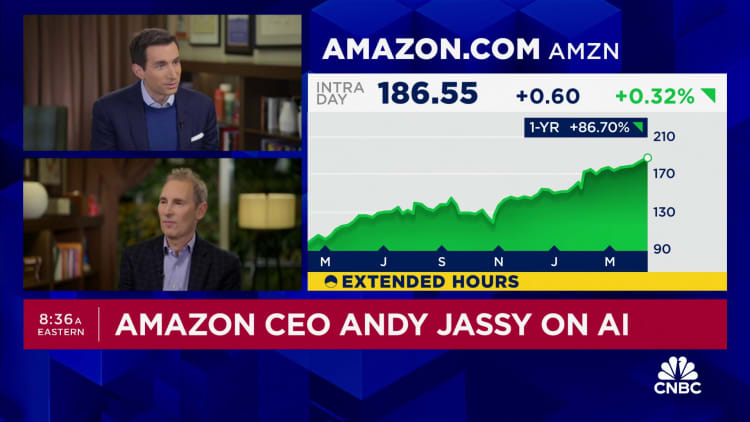A screens shows footage of South Korean President Yoon Suk Yeol delivering an address to the nation at Seoul station on Dec. 7, 2024 in Seoul, South Korea.
Chung Sung-jun | Getty Images News | Getty Images
South Korea’s President Yoon Suk Yeol was impeached on Saturday in a vote triggered after his fleeting failed attempt to impose martial law in early December.
A presidential election must be held within 60 days if the incumbent is dismissed or resigns.
The vote was 204 in favor of impeachment and 85 voting against it; voting in three abstentions and eight votes were ruled invalid, NBC News reported. The vote required a two-thirds majority to pass.
Prime Minister Han Duck-soo will serve as acting president following the vote, after Yoon was suspended from state duties, according to NBC News.
“I will do my best in the stable governance of our country,” he said after the vote, NBC News reported, noting that Han may also face impeachment over his alleged role in Yoon’s martial law declaration.
A previous impeachment motion on Dec. 7 did not gain the required 200 out of 300 votes in favor from South Korea’s National Assembly, after allied lawmakers in Yoon’s People Power Party walked out before the show of hands. The tide has since turned, with PPP leader Han Dong-hoon on Thursday appearing to throw his support behind a parliamentary vote to impeach Yoon and calling for an ethics committee to discuss his departure from the party, according to South Korean news agency Yonhap.
The motion was instigated by opposition lawmakers after Yoon on Dec. 3 briefly imposed martial law for the first time since the military coup of 1979, citing the need to “protect the constitutional order based on freedom and eradicate shameful pro-North Korea anti-state groups, that are stealing freedom and happiness of our people,” according to NBC News. The measure, which was reversed within six hours, raised questions over the possibility that Yoon may attempt to inflict martial law nationwide a second time.
The president has faced a slew of scandals — many surrounding his wife, businesswoman Kim Keon Hee — since assuming office for a single mandate in 2022. His approval rating plunged to 17.3% in the days since the Dec. 3 incident, as Yoon, who initially said he put his fate in the hands of his party, undauntedly resisted mounting calls to step down from opposition lawmakers and peaceful protesters. He has been banned from leaving the country.
Yoon is not the first South Korean president to face an impeachment vote since the turn of the century, with Roh Moo-hyun and Park Geun-hye removed in 2004 and in 2016, respectively, as a result of such proceedings.
On Thursday, Yoon gave a lengthy defiant national address pledging to “fight to the end” and “stand firm,” NBC News reported.
“The opposition parties are currently going berserk, claiming that the declaration of martial law equates to insurrection,” Yoon said. “Is what they claim true?”

The political turmoil first sent markets reeling and kindled concerns over the democratic stability of Asia’s fourth-largest economy — but John Woods, chief investment officer at Lombard Odier, said that South Korea observers are now “looking through this crisis” and refocusing on local earnings.
“Certainly there is an end game, I think, in sight, and no doubt that will play through in the first quarter or so of next year,” Woods told CNBC’s Tanvir Gill on Thursday. “This volatility around the political backdrop is something we need to consider very seriously. But certainly the broad value of [South] Korea as a proxy AI is something also that we can’t overlook.”
Tech, chips and the booming AI industry play a central role in South Korea’s economy, which the International Monetary Fund forecasts will expand by 2.5% this year.
Credit: Source link














